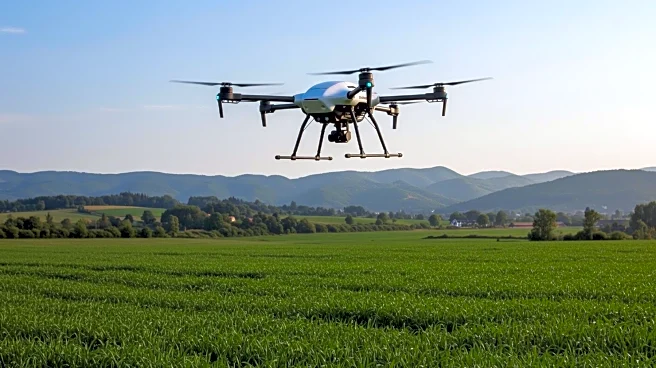What is the story about?
What's Happening?
The Sir Arthur Lewis Community College (SALCC) in Saint Lucia recently hosted a Digital Agriculture Hackathon in collaboration with the Inter-American Institute for Cooperation on Agriculture (IICA). The event, held on August 7, 2025, at the SALCC farm in Dennery, aimed to promote Agriculture 4.0, a transformative approach leveraging advanced technologies to optimize food production and resource management. Participants included SALCC students, staff, agri-entrepreneurs, and Ministry of Agriculture technicians, who were divided into teams to tackle specific challenges related to piggery waste management, poultry production, and greenhouse management. The hackathon encouraged participants to design innovative solutions, which were judged by a panel of experts. The greenhouse management team won with a solution that combined climate monitoring sensors and enhanced ventilation design.
Why It's Important?
The hackathon represents a significant step towards integrating technology into agriculture, a sector crucial for food security and economic stability. By fostering innovation among students and professionals, the event helps prepare the next generation of agricultural leaders to address pressing challenges such as environmental sustainability and resource efficiency. The solutions developed could lead to more sustainable farming practices, potentially increasing productivity and reducing environmental impact. This initiative also highlights the importance of collaboration between educational institutions and industry experts in driving technological advancements in agriculture.
What's Next?
Following the success of the hackathon, SALCC and IICA plan to explore opportunities to pilot the winning solutions on the SALCC farm. This could pave the way for continued innovation and collaboration, potentially leading to broader implementation of these technologies in local farms. The focus on data collection and processing as emphasized by the participants could further enhance agricultural operations, making them more efficient and sustainable.















